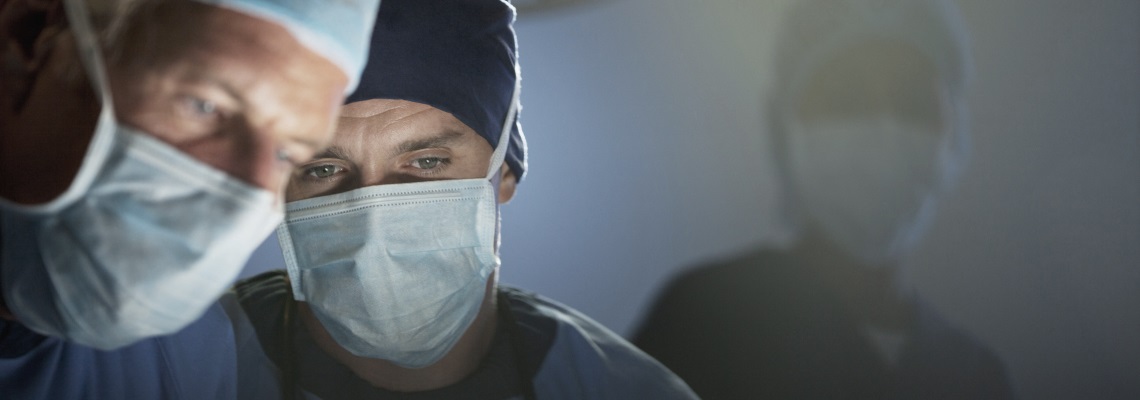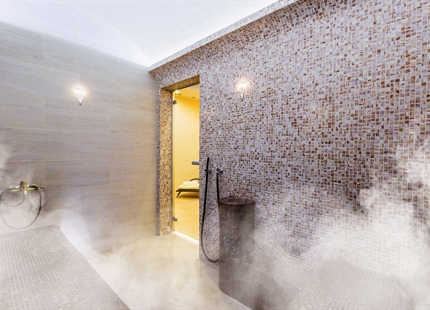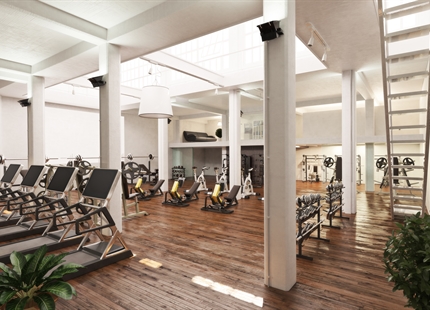
Condair Humidification for Hospitals and Operating Rooms
Headaches, sore eyes and throat, nasal stuffiness, lethargy, skin complaints and an increase in airborne viral transmissions are all effects of a dry atmosphere. Dry air will suck moisture from all possible sources in the room including mucous membranes in the nose and throat, which are designed to protect us from infection. Moisture will also be drawn from any body tissue exposed during operations. This can cause premature drying and promote the formation of a scab from coagulated blood.
Perhaps more importantly in theatre is the effect of electrostatic shocks which build up below 40% RH. The uncomfortable, surprising jolts caused by a sudden static discharge can have potentially damaging and dangerous effects on surgery.
Consideration must also be given to the prevention of electrostatic sparks in relation to flammable anesthetic gases.
The humidity levels in maternity and obstetric departments should always be maintained as babies are particularly sensitive to a dry atmosphere. Also, low relative humidity can severely exacerbate the condition of patients with respiratory problems.
Steam is a very popular solution in hospitals as it ensures the moisture being introduced is 100% safe and also due to the fact that there is often a ready supply of steam being used for sterilising purposes.
Benefits of Condair humidification in healthcare environments include:
- Transmission of airborne viruses is significantly reduced if the relative humidity is maintained above 40%
- 40-60% RH is optimum condition for human health and comfort
- Extensive expertise around the world in many healthcare environments
- Comprehensive product range to precisely meet customers' requirements
- Low energy systems to reduce operating costs and improve humidity control
- Low maintenance solutions to reduce on-going service requirements
- Great Ormond Street Hospital, UK
- Cork University Hospital, Eire
- Guys Hospital, UK
- John Radcliffe Hospital, UK
- St Mary's Hospital, UK
- Chesterfield Nuffield Hospital, UK
- Sheffield Children's Hospital, UK
- Harefield Hospital, UK
- Royal Berkshire Hospital, UK
Other applications where Condair delivers vital humidity control ...
Care Center
Humidification for Care Centers
Read moreSpa & Wellness
Relax and enjoy the highly innovative steam bath systems from Condair
Read moreGyms and Hot Yoga Studios
What are the benefits of optimal humidity in fitness studios?
Read moreHumidification for Hotels
Improving the Indoor Climate for Guest Comfort
Read moreHospitality, Sport and Wellness
Your guests should feel completely comfortable and relaxed. The right humidity plays an important role in this.
Read moreHot Yoga Studios humidification
We’ve worked with enough hot yoga studios to know how important it is to balance heat and humidity for an optimal yoga envir...
Read moreSchools and Children humidification
Proper humidification in schools can reduce absenteeism by 20%.
Read moreHotel and Wellness humidification
Hotel rooms, which are humidified between 40 - 60% RH are an additional, important health benefit for your guests.
Read moreHumidification for Nursing and Retirement Homes
Dry nose, itchy skin, and sore throats are just some of the many side effects of living in an environment with low humidity.
Read moreHome humidification
Improves health and protects furniture, floors and textiles.
Read more









